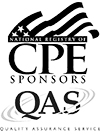Criminology and the Psychology of Fraud

Overview
Online Self-Study
Description
To effectively combat fraud, it’s important to understand the context in which it occurs and the environmental and personal factors that can contribute to its prevalence. Criminology theories offer crucial lessons on the factors that can lead to fraud and related crimes. Additionally, it’s important for fraud examiners to understand what might motivate perpetrators and how they might rationalize their behaviors.
This course will introduce you to the basics of criminology theories and examine how they relate to white-collar crime. Additionally, this course will discuss many of the psychological and environmental factors that can lead to fraud. A foundational knowledge of why and how fraud might occur is critical to both the detection and prevention of white-collar crime.
Key Takeaways:
- Historical background of criminology
- Psychological traits common to fraudsters
- How workplace culture affects the occurrence of fraud
- Why individuals choose to commit fraud
- An understanding of the Fraud Triangle
Prerequisites
None
You Will Learn How To:
Compare various criminological theories and their varying explanations of crime causation
Identify how criminological theories explain and predict white-collar crime
Recognize how organizational structure and climate can contribute to fraudulent behavior
Identify the unique aspects that distinguish fraud from other types of crime
Identify the weak psychological, organizational, and societal restraints that make fraud more likely to occur
Recognize some of the psychological traits that are common to fraudsters
Table of Contents
| Part I | Introduction to Criminology |
|---|---|
| Lesson 1 | The Classical School |
| Lesson 2 | Positivism |
| Lesson 3 | Sociological Criminology |
| Part II | White-Collar Crime and Criminology |
| Lesson 4 | Other Aspects of Criminology |
| Lesson 5 | White-Collar Crime Versus Street Crime |
| Lesson 6 | The Costs of White-Collar Crime |
| Lesson 7 | The Fraud Triangle |
| Lesson 8 | Other Theories of Causation |
| Part III | Organizational Structure and Fraud |
| Lesson 9 | Organizational Climate |
| Lesson 10 | The Normalization of Corruption |
| Lesson 11 | Obedience to Authority |
| Part IV | Individuals and Fraud |
| Lesson 12 | Motivation |
| Lesson 12 | Testimony |
| Lesson 13 | Strain Theory and Pressure |
| Lesson 14 | Rationalization and Neutralization |
| Lesson 15 | Weak Restraints and Opportunity |
| Lesson 16 | Deception |
| Lesson 17 | Psychopathy and Sociopathy |
| Lesson 18 | Conclusion |
CPE Information
| CPE Credit: | 4 |
|---|---|
| NASBA Information: | Behavioral Ethics |
| Advance Preparation: | None |
| Last Updated: | June 2023 |
| Delivery Method: | QAS Self-Study |
Policies
CPE Credit
Please note: To be eligible for CPE credit, you must complete the final exam within one year of purchase date. You may only claim CPE credit for a course once.
ACFE Online Self-Study Courses
Features:
- 24/7 access to courses through your Internet browser
- Save time and quickly earn CPE credits with instant access, grading and printable certificate
- The flexibility to start or stop a course and pick-up right where you left off
- No additional shipping fees
Learn More about accessing your online self-study course
Learn More about online self-study courses and their features
System Requirements:
- Internet access: High-speed connection recommended
- Speakers required for video sound
 The Association of Certified Fraud Examiners, Inc. is registered with the National Association of State Boards of Accountancy (NASBA) as a sponsor of continuing professional education on the National Registry of CPE Sponsors. State boards of accountancy have final authority on the acceptance of individual courses for CPE credit. Complaints regarding registered sponsors may be submitted to the National Registry of CPE Sponsors through its website: www.nasbaregistry.org/.
The Association of Certified Fraud Examiners, Inc. is registered with the National Association of State Boards of Accountancy (NASBA) as a sponsor of continuing professional education on the National Registry of CPE Sponsors. State boards of accountancy have final authority on the acceptance of individual courses for CPE credit. Complaints regarding registered sponsors may be submitted to the National Registry of CPE Sponsors through its website: www.nasbaregistry.org/.
Ordering and Returns
Satisfaction Guarantee
If you are not 100% satisfied with any ACFE product, you may return it to us, provided it is in excellent condition, for a full refund of the item minus the cost of shipping. Toolkits and bundles may only be returned as a complete set.
Ordering & Returns Policy

